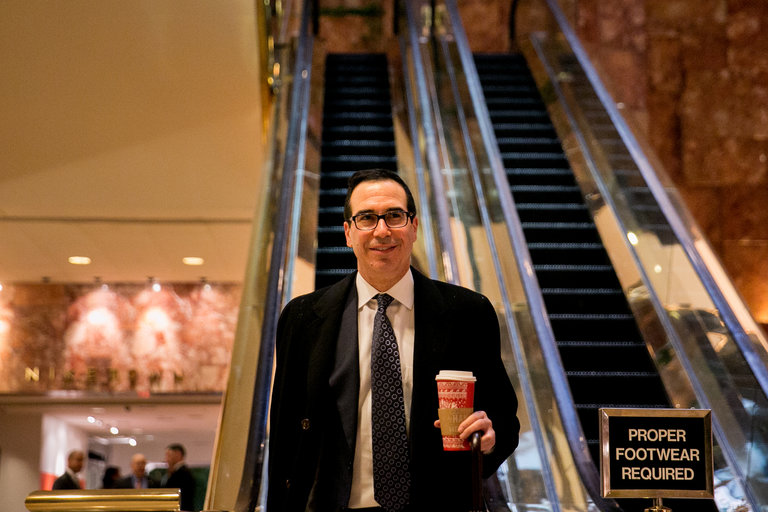
Peace deals, protests, and powerful bankers. 25 November – 2 December: What just happened?
Maybe, just maybe, peace is on its way to Colombia
.@CamaraColombia aprueba refrendación del #NuevoAcuerdo. Gratitud con Congreso por histórico respaldo a esperanza de paz de los colombianos https://t.co/5x9hqz0mNM
— Juan Manuel Santos (@JuanManSantos) December 1, 2016
Colombia's Congress has approved a peace deal that is might just manage to finally bring the country’s 50-year civil war to an end. A peace deal made earlier this year was rejected in a popular referendum, but the current deal was passed directly by the Colombian legislature, a move critics are calling undemocratic. What does this mean for the economy? Well, oil and coal are Colombia’s main exports, and both industries have had to deal with regular sabotage because of the war. Peace may also make Colombia more attractive to international investors who tend to be skeptical of funding long term projects in war zones. By the measure of 'growth', Colombia has been doing well for the last ten years, with inequality, corruption, and the drug trade remain huge issues which a peace deal might come one step closer to helping solve. The New York Times has more.
Millions on the streets in South Korea
SOUTH KOREA
— The Int'l Spectator (@intlspectator) November 26, 2016
- President allowed friend to manipulate power
- Approval rating: 5%
- Million protesters in Seoul
- Largest protests since 80s pic.twitter.com/jxqxBkrgAR
South Korea’s month-long corruption scandal reached a head this week when President Park Geun-Hye offered to resign. The “bizarre” scandal, revolves around President Park’s friend Choi Soon-sil, a mysterious figure that appears to have used her influence with the President to receive donations from large companies like Samsung. The scandal has dominated South Korea for weeks, creating a lot of uncertainty about who will lead the country and what kind of policies they will pursue when the scandal is over. It’s also had some unexpected consequences; cinema sales are way down as people spend their weekends protesting in the streets. Marketplace explains.
Trump's got the Mnuchies (no, that's not a typo)

Donald Trump announced this week that banker, hedge fund manager, and movie producer Steven Mnuchin will be the next Secretary of the Treasury. The pick has drawn sharp criticism from many in the media who are unhappy about Minuchin's lack of policy experience and worry that Trump is simply filing his cabinet with campaign supporters. The Secretary of the Treasury is one of the most important positions in the United States—they act as the primary economic advisor to the president and oversee most of the country’s economic regulations. The US Treasury Secretary also plays a key role in many international organizations like the and the .
The Royal Bank of Scotland needs to take a chill pill, study finds

The Royal Bank of Scotland (RBS) failed a stress test run by the Bank of England this week. Stress tests are kinda like wargames for bankers; the central bank dreams up a set of horrible financial things—like a big global recession or crash in house prices—and tries to predict how well banks would handle the crisis. The good news is that the banking sector as a whole passed the test (this year it was to survive for 5 years after a giant 2 year stock market crash). But RBS was the weakest link, so now they have to trade some of their riskiest assets for safer ones. The Guardian has more.
In other news…
They’re just giving it away! Easy Coffee is planning to expand from 3 UK locations to 200. And their coffee isn’t only easy, it’s cheap! For just £1 Easy Coffee claims to give you the same joe as Starbucks. We’ll be the judge of that.
What did you kill this year? Apparently, over the course of 2016 the Millennial generation has collectively murdered basically everything our parents hold dear. Turns out the year’s glut of celebrity deaths was just a diversion to help youngsters finish off napkins, hotels, the Big Mac, American democracy, Canadian tourism, the European Union and the Mexican internet.
Money for nothing and your holes for free. Cards Against Humanity, the popular card game, raised over $100,000 this week to dig a hole. According to the group, the hole serves no purpose—practical or symbolic. Cue the cries of “why not donate the money to charity!”.
Spa-musement spectacular
One of the greatest forces in economics is complementarity: two things that, when combined, are better than either alone. Think milk and cereal, Bonnie and Clyde, movies and popcorn…. spas and amusement parks. This week Beppu, a city in Japan, released a concept video of what the world’s first ‘Spamusement’ park might look like. The city said they would move forward with actually building the park once the video hit 1 million views. It at 2 million and counting. Ball’s in your court Beppu.



